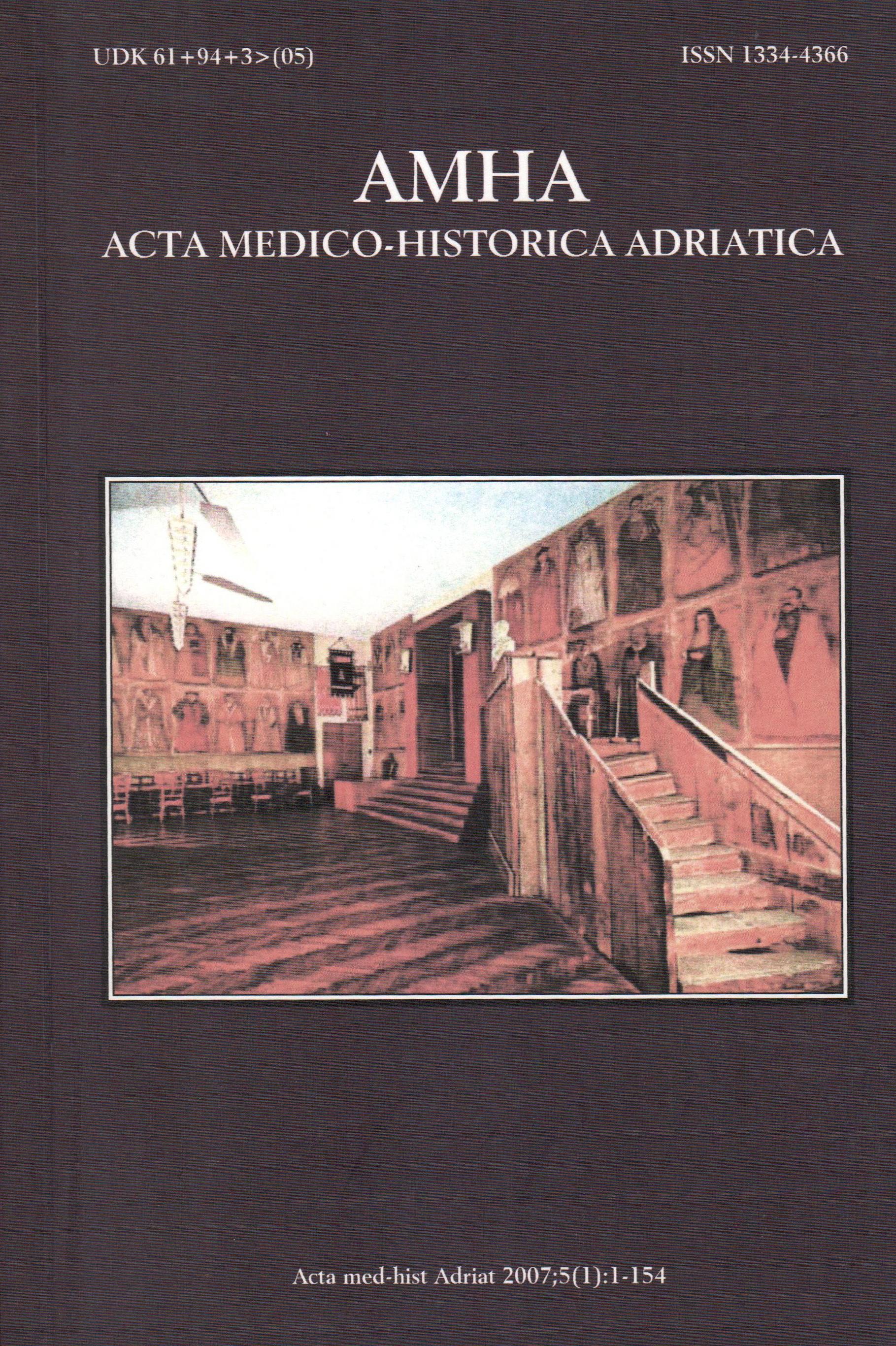TRAGOVI ZDRAVSTVENE KULTURE U EKLOGI IZ 726. GODINE
Abstract
In 726, Byzantine emperors Leo and Constantine of the Isaurian Dynasty issued an eclogue, which in fact is a small code and the beginning of Roman Law in the Mediaeval Byzantine Empire. Its rules and regulations for long remained in use in Europe, including parts of Croatia under Byzantine influence such as Istria and Dalmatia. This article investigates matters that take us to what seem to be the traces of health culture contained in the Ecloge. These traces could be divided in two groups, as follows: - MATTERS OUTSIDE CRIMINAL LAW such as approach to leprosy as grounds for divorce, abuse as grounds for cancellation of gifts, physical and psychological disturbances as grounds for invalidity of a testament, abuse and mental diseases as grounds for disinheritance, freeman's abuse of the master as grounds for re-enslavement, mental disease of a slave as grounds for return to the seller, use of torture in interrogation of unreliable and false wit- nesses, fear of physical threat as grounds for the cancellation of agreements reached under these circumstances; and - M ATTERS OF CRIMINAL LAW related to the penal system, which give us a broader and more valuable insight in the multitude of ways to treat actions against the integrity of the human life and body. The most common punishment was beating (for 18 offences), then nose ampu- tation (12), "sword punishment" which means death by the sword (9), hand amputation (8), tongue amputation (1), blinding (1), genital mutilation (1, for sodomites), burning at stake (1), and hanging (1). The article analyses all of these into more detailDownloads
Published
2022-08-12
Issue
Section
Articles


